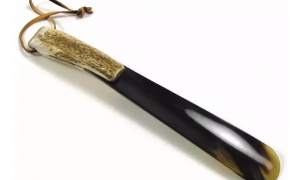1. Acrobat
杂技演员
From the word akri (άκρη, "tip" or "edge") and the verb vaino (βαίνω, "to walk"), an acrobat is someone who walks on the edge, almost on tiptoe.
起源于单词akri(“末梢”或者“边缘”)以及vaino(“走”),杂技演员是几乎用脚趾走在边缘的人。
2.Cemetery
墓地
It took me some time to realize that this word comes from Greek. A lot of words disguise themselves as Old French or Latin but cemetery in fact comes from the word koimame (κοιμάμαι, "to sleep") which is also the root of the Greek word koimitirion (κοιμητήριο, "dormitory"). A cemetery is a dormitory for the dead!
我花了很长时间才意识到这个词起源于希腊。许多单词都把它们自己伪装成古法语或者拉丁语,但是事实上cemetery起源于单词koimame(“睡觉”),希腊词koimitirion(“宿舍”)也起源于“koimame”这个词。墓地是死者的安息之地。
3.Cynicism
犬儒主义
Cynicism comes from the Cynics, a school of Ancient Greek philosophers. But the name probably derives from a public gymnasium called Cynosarges, where one of Socrates’ pupils taught. According to one myth, the Athenians were in the middle of making an offering to Heracles when a dog snatched the animal and deposited it near the location where the gymnasium was later built.
Cynicism由单词Cynics演化而来,Cynics是古希腊哲学家的一个派别。 但是这个名字很可能是起源于一个名为Cynosarges的公众体育馆,苏格拉底的一个学生曾经在那里教过学。据神话记载,当雅典赫拉克勒斯献祭时,一只狗抓住动物并把它放在了献祭地点的附近,后来那附近就建了一个这样的体育馆。
4.Democracy
民主
Everyone’s favorite word, democracy — from demos (δήμος, "people") and kratos (κράτος, "power") — is simply put: Power to the People!
每一个人都喜欢这个词,民主 — 起源于demos(“人民”)以及kratos(“权力”)— 二者很简单的被放到一起:权力属于人民!
5.Dinosaur
恐龙
What is the first thing that comes to your mind when you think of a dinosaur? According to Greek, a dinosaur is a lizard from deinos (δεινός, "terrible") and savra (σαύρα, "lizard").
当提到恐龙,你脑海里第一个浮现的是什么?据希腊语记载,恐龙是一种类蜥蜴爬行动物,这个词起源于deinos(“可怕的”)和savra(“类蜥蜴爬行动物”)。
6.Europe
欧洲
According to Ancient Greek mythology, Europe was a mythological princess, with big, beautiful eyes, from evrys (ευρύς, "broad") and ops (ωψ, "eye"). Zeus fell in love with her and, to approach her, he transformed himself into a white bull. Europe sat on the bull and was taken on a faraway trip to what is today Europe. If you have just come back from Greece you may have this little piece of mythology lying somewhere in your wallet, as the story of Europe and the bull is depicted on the Greek 2-Euro coin.
据古希腊神话记载,Europe是一个神话里的公主,眼睛大大的很漂亮。这个词起源于evry(“宽的,大的”)和ops(“眼睛”)。宙斯爱上了她,为了接近她他把自己伪装成一头白牛,她骑着白牛远行去了今天的欧洲。如果你刚刚从希腊回来,你会发现这段神话可能就在你钱包的某处,因为这段故事被印在两欧元的硬币上。
7. Galaxy
银河
Galaxy, a.k.a. Milky Way comes from the Greek word for milk, gala (γάλα). According to Ancient Greek mythology , the Milky Way was created by Heracles, son of Zeus, when he tried to suckle on his step-mother’s milk while she slept. When Hera woke up to discover that she was breastfeeding an infant that was not her own, she pushed the child away, causing the milk to spurt into the universe. Galaxy又被称为Milky Way,起源于希腊单词milk, gala。
据古希腊神话记载,银河由宙斯的儿子赫拉克勒斯创造,他那时还是一个婴儿,他试图在继母睡着的时候吸吮她的奶,但是当神后赫拉醒来时发现她哺乳的并不是自己的孩子,她便把孩子推开,这样就导致奶水流到了宇宙。
8.Hermaphrodite
雌雄同体
Another one from the Ancient Greeks, Hermaphrodite was the son of Gods Hermes and Aphrodite. As the most handsome man in the world, he became the object of affection of nymph Salmacis who prayed to the Gods that they stay together forever. The Gods heard her prayer and joined the two in one body.
这是来自于古希腊的另一个单词,Hermaphrodite是赫耳墨斯和阿佛洛狄特的儿子。作为世界上最帅气的人,他成为女神萨耳玛西斯的爱恋对象,萨耳玛西斯向上帝祈祷希望他们能够永远在一起,上帝听到了她的祈祷便把两个人合为一体。
9.Marathon
马拉松
A marathon is a long-distance footrace and there are thousands of marathons taking place every year around the world. Officially, a marathon is 42.1 km (or 26.1 miles) long, in a nod to the actual distance between the cities of Marathon and Athens.
马拉松是长途竞走,每年在世界各地都会有许多场马拉松。据官方统计,一场马拉松有42.1千米,是马拉松到雅典两个城市间的距离。
10.Marmalade
果酱
Although dictionaries will tell you that the word comes from Portuguese, it, in fact, comes from the Greek words meli (μέλι, "honey") and milo (μήλο, "apple") or sweet apple/fruit. Another source says that Ancient Greeks liked cooking quinces, which are known in Portuguese as marmelos, with honey.
虽然据词典记载这个词起源于葡萄牙,事实上这个词起源于希腊词汇meli(“蜂蜜”)以及milo(“苹果”)或者甜的苹果或者水果。另一种说法就是古希腊人喜欢用蜂蜜煮柑橘,这在葡萄牙语中以marmelos这个名字出现。







